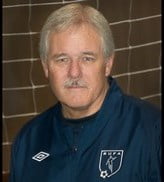I totally agree. This is certainly heading in the right direction, “THE ULTIMATE GOAL!” However, I’d like to add a few caveats.
During my coaching career, I experienced a number of “Learning Moments.” I used to say there’s nothing like a little experience to blow the heck out of a theory. That’s just a reality we always have to deal with. If we don’t try, we don’t learn.
I have a couple of instances that really taught me the difference between the ideal and reality. Let’s call that pragmatism. A few years back, I was doing similar processes and found a few things I hadn’t anticipated.

First, the sheer volume of work got to be too much.
Second, doing paperwork during training sessions took my eye off the ball, making the training less effective—it was actually counterproductive!
Third, I realized I didn’t need to make assessments at every practice. There would be insufficient improvement from one practice to the next. The logistics of it all turned into a prison of my own making. My intentions were good, but it just took too much time and effort for what it was worth.
Skill development takes time, and children need to be allowed that time to try, learn, and adapt. Sure, it’s important to keep track and take notes.

The question is…How Much and Why?
__________________________________________________________________________________

Koach Karls’ Notes:
Bill, thank you for sharing your experiences. Your insights will definitely be added to the “SOCCERevolution Guidelines!”
Your points about managing paperwork during training and allowing kids time to develop skills resonate with me. I also realized that constant assessments are unnecessary. However, some paperwork can satisfy both players and parents.
1. Here’s my approach:
An assistant coach or parent rotates tracking goals during practice.
First. (1 vs.1 Games): Total the # of goals scored by each individual.
Second. (Small-Sided Games): Total # of goals scored by each individual’s team.
Third. (Scrimmage): Total the # of goals scored by each individual’s team.
Bonus Points (goals) are given for an individual’s exceptional play, technique, behavior, and more, keeping it simple and FUN!
2. Example chart:

3. Totals Are Shared:
With players and parents at the end of each practice and weekly before league games. The top scorers start the games, removing emotional or subjective decisions—Invaluable!
Dear Reader, do you have any experiences to share that could help us avoid more surprises?





